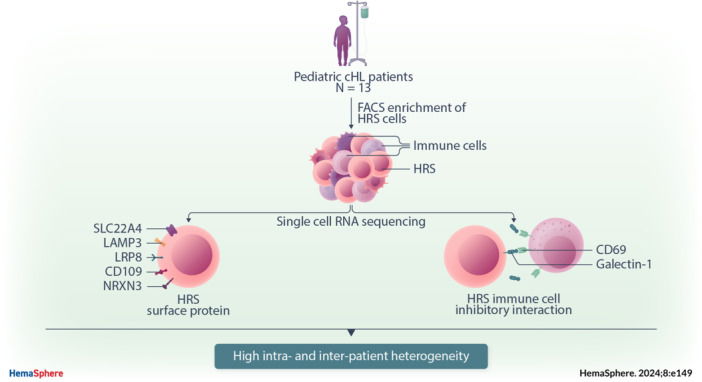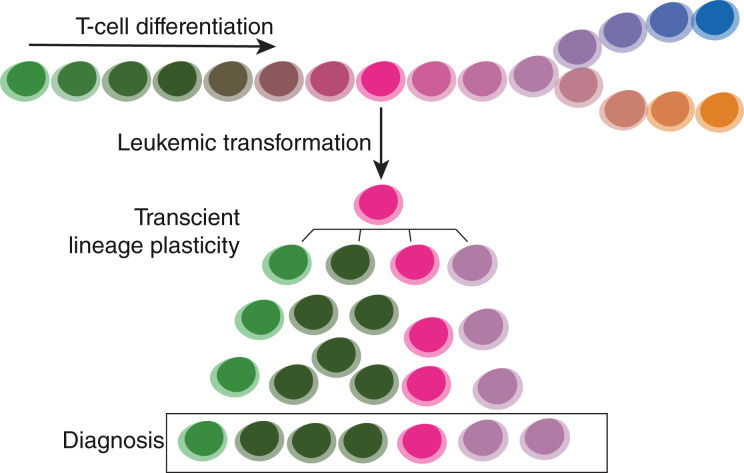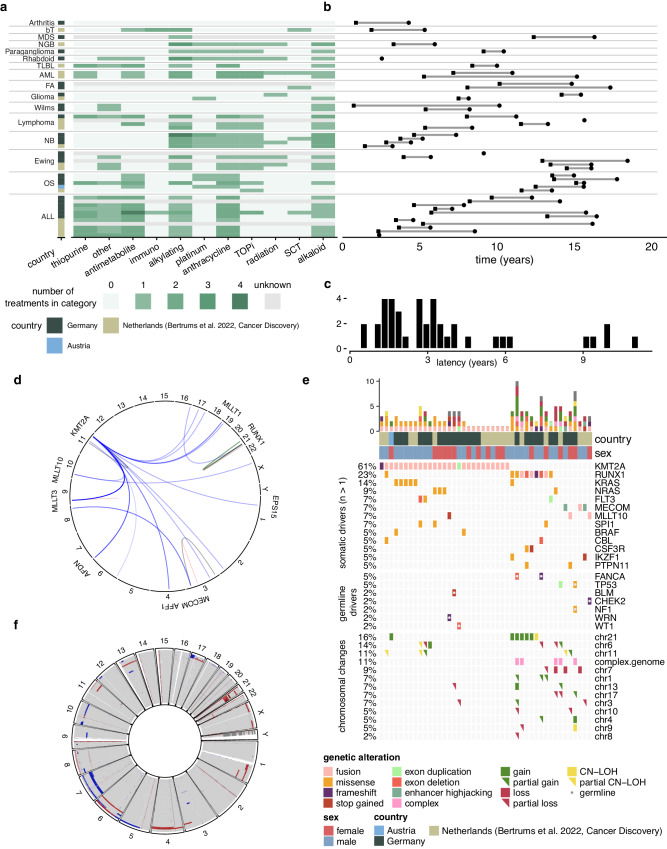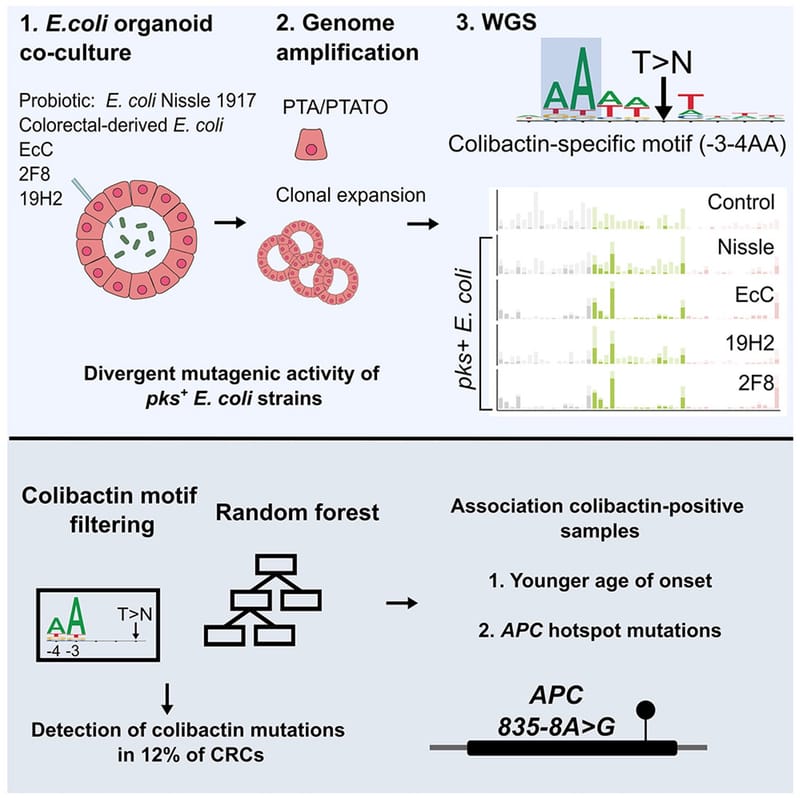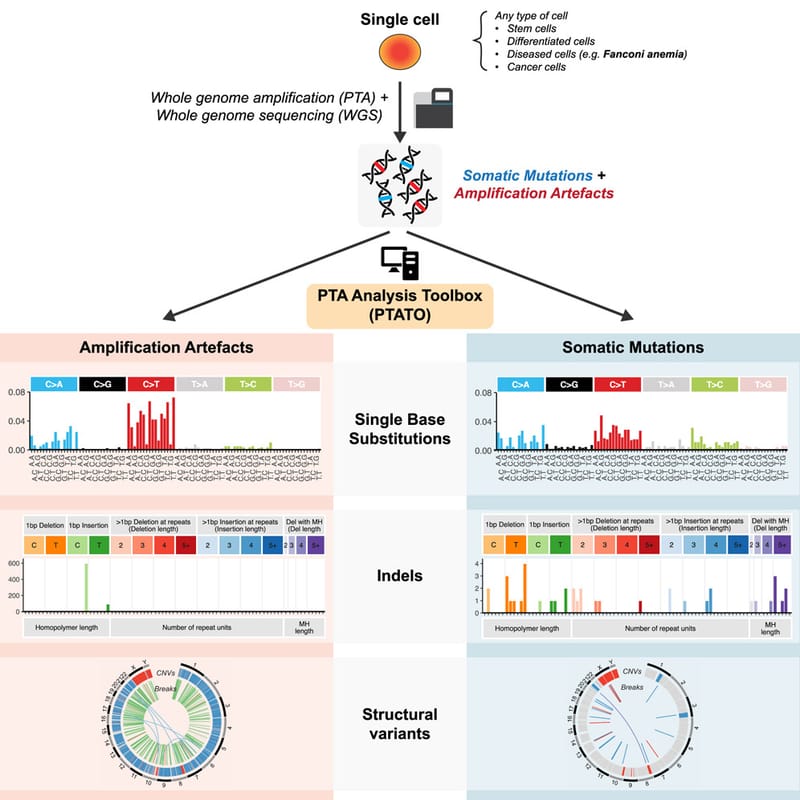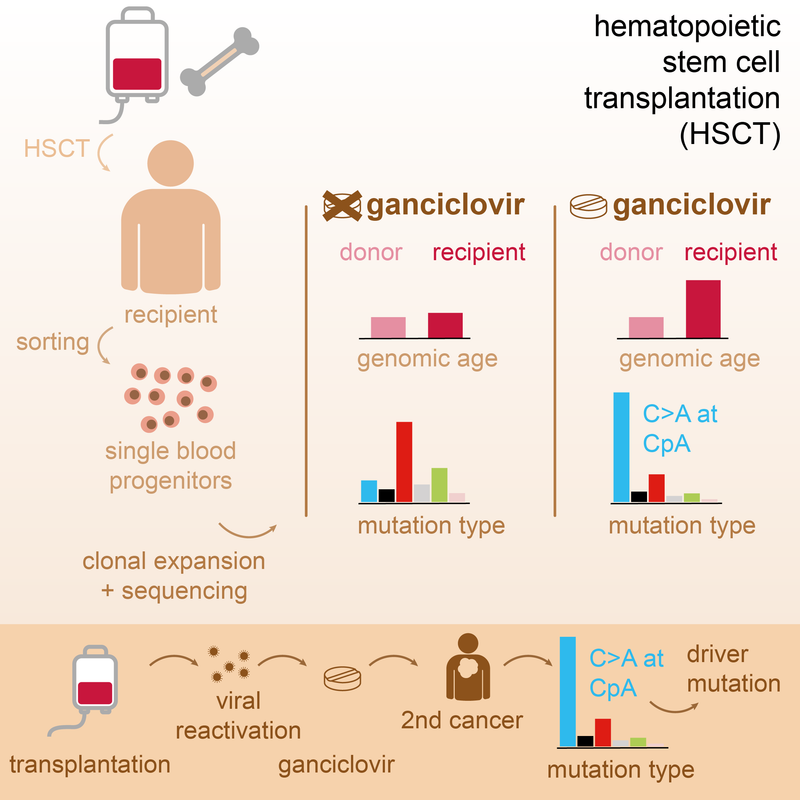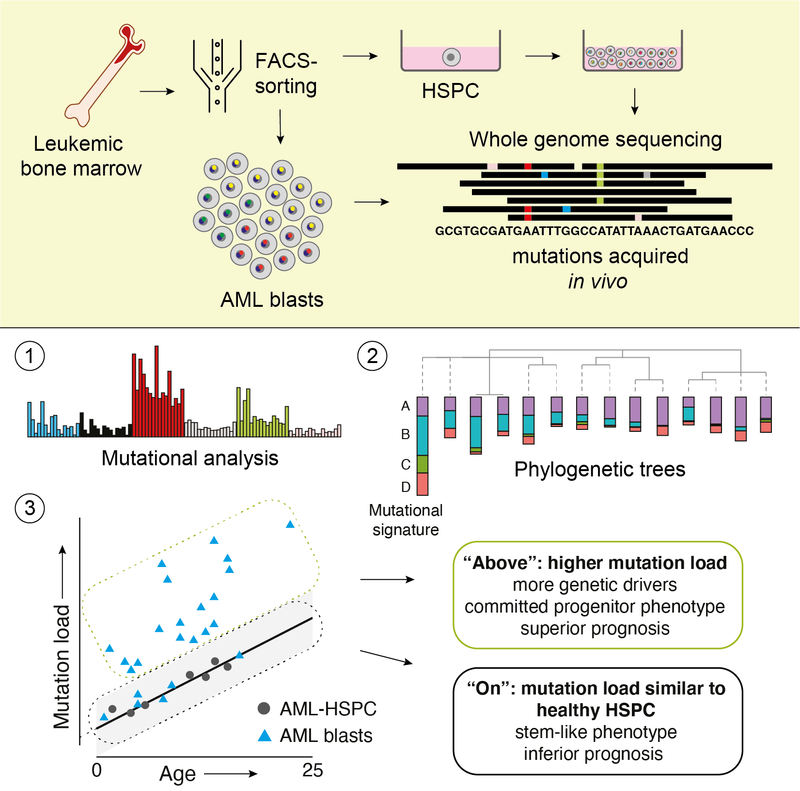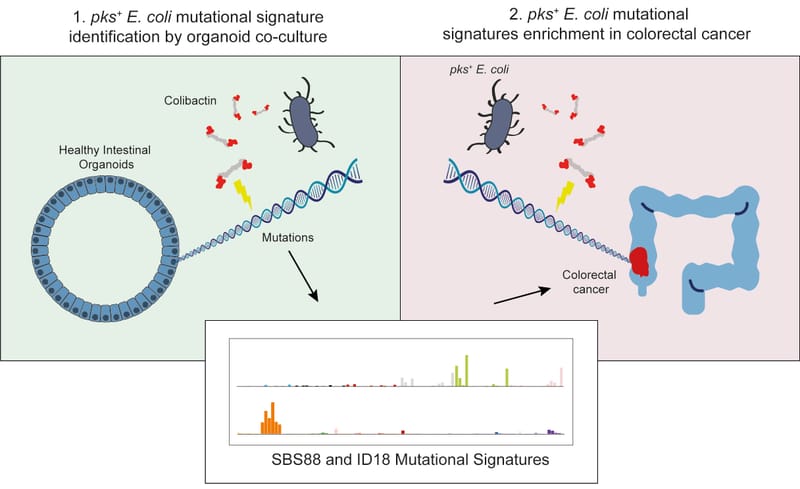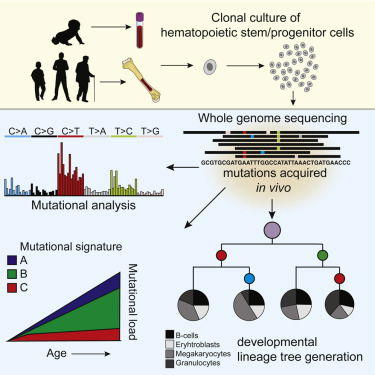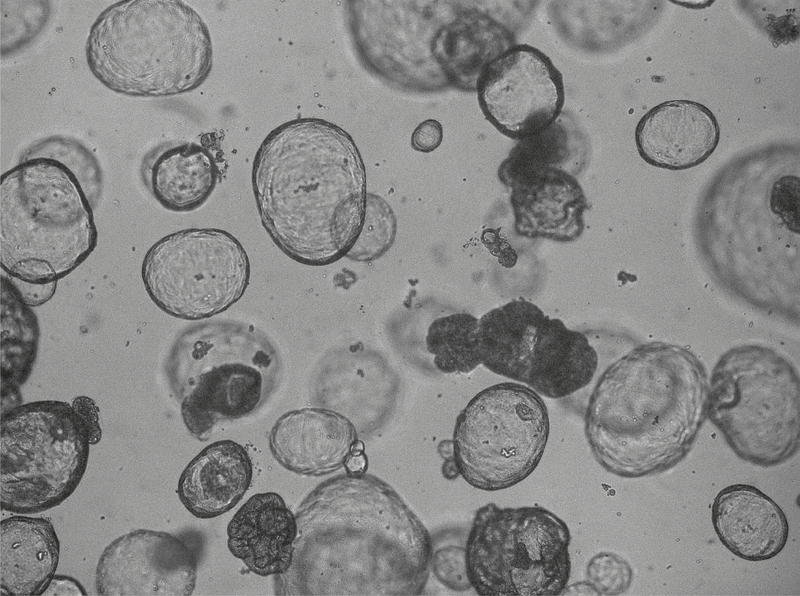Publications
Pediatric classic Hodgkin lymphoma (cHL) patients have a high survival rate but suffer from severe long‐term side effects induced by chemo‐ and radiotherapy. This study identifies new potential therapeutic targets for cHL and highlights the importance of studying heterogeneity when identifying therapy targets, specifically those that target tumor‐immune cell interactions.
Read MoreA method merging multicolor flow cytometry with single-cell whole genome sequencing to couple cell identity with clonal lineages uncovers differentiation-state plasticity in leukemia, reconciling blocked differentiation with phenotypic plasticity in cancer.
Read MoreTherapy-related myeloid neoplasms (t-MN) arise as a complication of chemo- and/or radiotherapy. Our results demonstrate that germline aberrations can interact with treatment exposures in inducing t-MN, which is important for the development of more targeted, patient-specific treatment regimens and follow-up.
Read MoreIn this study, Rosendahl Huber et al. show the mutagenic properties of pks E. coli strains, including probiotic E. coli Nissle 1917, using the extended target sequence context of colibactin and with a machine-learning model. These approaches allow for better distinguishing of colibactin-associated colorectal cancer cases, which are younger and are enriched for APC mutations matching the colibactin motif.
Read MoreDetection of somatic mutations in single cells is challenging, in part because whole-genome amplification causes many artificial mutations. Middelkamp et al. developed the computational PTA Analysis Toolbox (PTATO) that can effectively filter artifacts from PTA-based WGS data, enabling accurate analyses of somatic mutations in single cells at nucleotide resolution.
Read MoreChemotherapy increases the mutation burden of normal blood cells in cancer survivors. Only few drugs damage the DNA directly, while in most patients, chemotherapy-induced mutations are caused by processes similar to those present during normal aging. Cancer Discovery 2022
Read MoreAntiviral treatment with ganciclovir causes a unique mutational signature in stem cells of human transplant recipients. This signature was also found in therapy-related cancers and can cause cancer driver mutations. Cell Stem Cell 2021
Read MoreIn some children with acute myeloid leukemia, cancer cells have the same amount of DNA changes as healthy blood stem cells. Here, we show that these children have a poorer chance of survival compared to children whose leukemia has an above-average number of DNA changes. This study offers insight into how this form of blood cancer can develop in children. In the future, these findings may help identify which patients have a high-risk form of the disease. Blood Cancer Discovery 2021
Read MoreOur study describes a distinct mutational signature in colorectal cancer and implies that the underlying mutational process results directly from past exposure to bacteria carrying the colibactin-producing pks pathogenicity island. Nature 2020
Read MoreMutation accumulation during life can contribute to hematopoietic dysfunction; however, the underlying dynamics are unknown. Using mutations found in in acute myeloid leukemia, we construct a developmental lineage tree of human hematopoiesis, revealing a polyclonal architecture and providing evidence that developmental clones exhibit multipotency. Cell Reports 2018
Read MoreHere we determine genome-wide mutation patterns in human adult stem cells of the small intestine, colon and liver of human donors with ages ranging from 3 to 87 years by sequencing clonal organoid cultures derived from primary multipotent cells. Our results show that mutations accumulate steadily over time in all of the assessed tissue types, at a rate of approximately 40 novel mutations per year, despite the large variation in cancer incidence among these tissues. Nature 2016
Read MoreLink to all publications
Read More